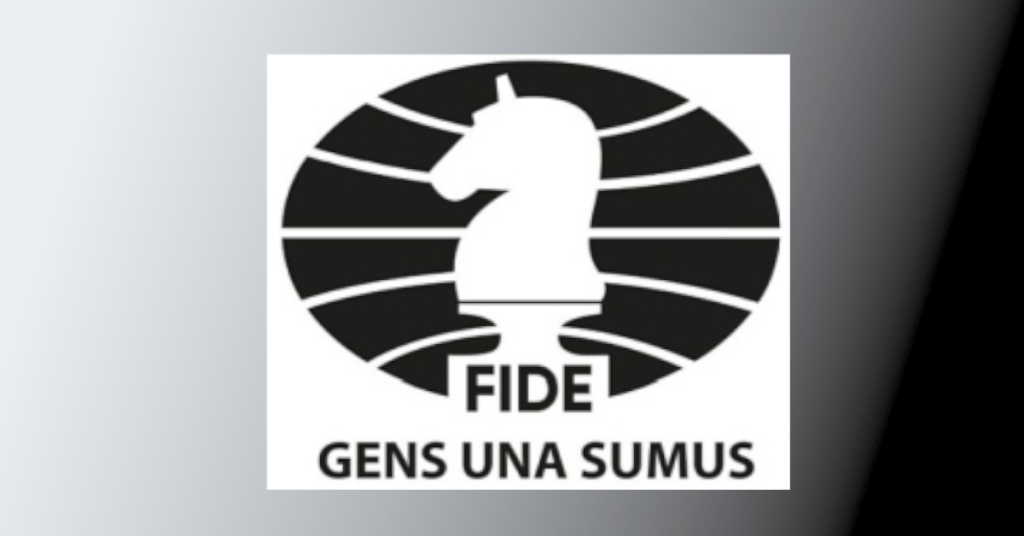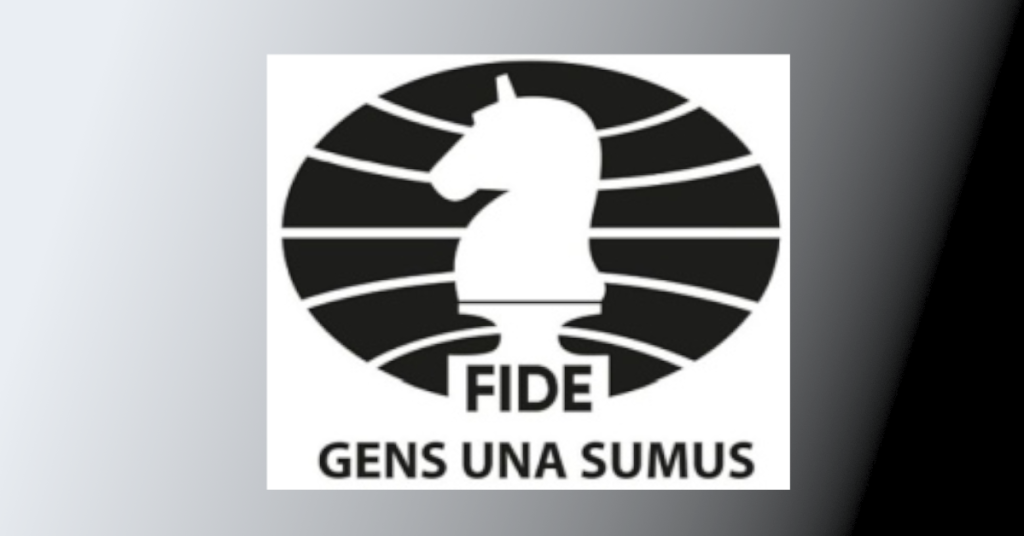FIDE WGP: Kateryna Lagno takes the lead in Astana

With two rounds to go, Kateryna Lagno is a half-point ahead of Aleksandra Goryachkina The Kazakhstan Chess Federation, in close collaboration with FIDE, is leaving no stone unturned in their desire to provide a clean and safe environment for the Women’s Grand Prix in Astana. One of the main concerns is guaranteeing that the players feel comfortable as soon as they arrive at the Astana Business Hub. The venue is spacious and well-lit, and players can access a special rest area with beverages, fruit and sweets. High-tech digital boards and clocks are being used for the games, and three different types of chairs are provided. With regard to anti-cheating, guarantees are solid. Among other measures, no spectators are allowed in the playing area, all participants are scanned before the game and randomly after the game, and there is a 15-minute delay on the live broadcast. Games will be won or lost, but from my point of view, both the hotel and the venue conditions are excellent. Abdumalik, Zhansaya — Goryachkina, Aleksandra (0.5-0.5) In the first game to finish, Zhansaya Abdumalik and Aleksandra Goryachkina repeated a well-known theoretical draw in the Ruy Lopez. Abdumalik scores half a point against the tournament leader while Goryachkina stays in the lead and saves energy for tomorrow’s important game against Kosteniuk As a side note, Aleksandra turns 24 tomorrow: a chance to celebrate with a quiet birthday dinner. However, this result did give Kateryna Lagno the chance to move into the sole lead if she defeated Zhu Jiner: stay tuned to find out! Tan, Zhongyi — Shuvalova, Polina (0-1) Although they have never faced each other in classical chess over the board, Tan Zhongyi defeated Polina Shuvalova by 17-10 in a gruelling 27-game match in the 2022 Women’s Speed Chess Championship. Shuvalova decided to repeat the Nimzo-Indian defence that she already used against Kashlinskaya in the fifth round, but Tan Zhongyi quickly deviated from the main line, going for a solid Ragozin exchange setup. Soon a d4-isolani position appeared on the board: active play for White’s pieces in exchange for the weak d4 isolated pawn. The crucial moment was when Tan Zhongyi invaded the seventh with her rook, which was a double-edged idea. Shuvalova tried to trap it, and in mutual time-trouble peppered with mutual errors, she managed to outplay her opponent and score her second win in a row. Polina was kind enough to give her insights into the game in an interview with FIDE Press Officer Michael Rahal. Wagner, Dinara — Assaubayeva, Bibisara (0.5-0.5) I could only locate two previous games between these two contenders: a win and a draw in favour of Wagner. With both players on 3.5/8, a win in this important game would catapult one of them to 50%. For today’s game, Assaubayeva, with Black, went for the popular Schallopp variation in the Slav defence: a new opening in this event. Possibly surprised by Wagner’s 10.0-0-0 (both 10.h3 and 10.g3 are far more common), Assaubayeva uncorked the unexpected novelty 10…a5!? And Wagner allowed the pawn to advance to a3, a thorn in the side of her castled king. After the exchange of queens, the game remained balanced for a while. Assuabayeva took advantage of Wagner’s deep time trouble to win a pawn, and even went into a rook ending with two extra pawns. But as they say, “All rook endings are drawn”, and today’s endgame wasn’t an exception. Paehtz, Elisabeth — Kashlinskaya, Alina (0.5-0.5) The German number one female player has generally had good results when facing Poland’s number one. According to the database, they have played classical games five times, with a four to one favourable score for Elisabeth. For the first time in this tournament, Kashlinskaya went for the Nimzo-Indian defence, against which Paehtz chose the popular Bd3-Nge2 setup. After the adventurous 8…e5!?, Paehtz spent 22 minutes evaluating the consequences of grabbing a pawn with 9.Bxf7+ and more than half an hour to calculate 12.Nf4, played back in 2010. It’s unclear whether the pawn sacrifice was preparation – you can argue that there is some compensation for Black – but at least Kashlinskaya was well ahead on the clock. Given her impending time trouble, Paehtz decided to return the extra pawn for an easier game, and after some more exchanges, a peaceful draw was agreed. Zhu Jiner — Lagno, Kateryna (0-1) In their first game face-to-face, Lagno went for the Four Knights Sicilian, which Elisabeth Paehtz has already used a couple of times in this tournament. Zhu Jiner chose the main line with White, but Lagno had prepared a reputable side-line (8…Bb7 instead of 8…Qc7). Zhu Jiner wasn’t caught by surprise. She blitzed out the best moves according to modern theory, momentarily sacrificing a pawn along the way. Lagno returned the pawn a few moves later, and the position remained equal. According to the computer, Zhu Jiner missed a huge chance with 25.a4! (instead of 25.Rc4) with the idea of 26.f5 and 27.Nxd7 in many variations. I also discussed these variations with Lagno before her interview, and she sensed that she might be in danger. However, Zhu Jiner wasn’t on her day and had a blackout. She went for a direct tactical attack but missed that after 28.exf6? she was losing the bishop on c5, which wasn’t hanging before. After losing two games in a row (against the two leaders), she still maintains her third place but is no longer a contender for the top spot in Astana. With this win, Lagno is the sole leader, half a point ahead of Aleksandra Goryachkina. But with two games to go, anything can happen, as she reminded us in her post-game interview. Kosteniuk, Alexandra — Vaishali, Rameshbabu (1-0) In spite of only having played one classical game (which ended in a draw), Kosteniuk and Vaishali clashed in one of the rounds of the 2020 Women’s Speed Chess Championship, which Kosteniuk won by 7-4. Against Vaishali’s Sicilian Defence, Kosteniuk went for the Rossolimo Attack and achieved a small edge in the opening. It’s
Winners crowned at FIDE World Cadet Championship
The FIDE World Cadet Chess Championship 2022 in the U8, U10 and U12 categories is in the books. In the final round, the participants, especially those contesting for medals, showed real fighting spirit. Not all the favourites made it to the podium, giving way to uprising lower-rated players. For example, in the Under 8 Open section, Indian Safin Safarullakhan (number 26 on the starting list) climbed as high as the third position in the final standings and took bronze. In the U8 Girls section, Lila Rzadkowska from Poland (19th on the starting list) also claimed bronze. On the other hand, in all other categories, the medals went to the top-10 rated participants. Final results in each category: U8 Open Llari Marc (FRA) Shogdzhiev Roman (FID) Safin Safarullakhan (IND) U10 Open Lacan Rus David (FRA) Smirnov Mark (KAZ) Liu Patrick (USA) U12 Open Uskov Artem (FID) Movahed Sina (IRI) Besou Hussain (GER) U8 Girls Charvi A (IND) Sivanandan Bodhana (ENG) Rzadkowska Lila (POL) U10 Girls Venskaya Nika (FID) Bassari Senem Gul (TUR) Siskou Evangelia (GRE) U12 Girls Shubhi Gupta (IND) Yousefian Maedeh (IRI) Goriachkina Oksana (FID) FIDE President Arkady Dvorkovich, who attended the final round, President of Georgian Chess Federation George Giorgadze and Akaki Iashvili, welcomed participants, coaches, guests and special guests at the closing ceremony as well as awarded winners. In his speech, Mr Iashvili mentioned that next year Batumi, Georgia, would host the World Cadet Rapid and Blitz Championships U8, 10 and 12, cementing the city’s status in the chess circuit. The winners were awarded diplomas, medals, cups, laptops and Apple devices. Photos : Mark Livshitz
Fifth Chess in Education Lecturer course announced

The International Chess Federation, together with its Chess in Education Commission (EDU) and “Chess” Scientific Research Institute (CSRI), is pleased to announce the 5th Chess in Education Lecturer course. The course will be held 28-30 October, in English, online 15:00-20:00 CET. The objectives of the course: To develop and enhance the skills of effective teaching of chess basics To enhance the ability of using active and interactive teaching methods To improve positive professional communication skills The target audience of the course is professionals with experience in chess and education. Duration and content: 3 days – 15 hours (including breaks) + Project. Day 1 Introduction (100 minutes); Fear – both teachers’ fear and your fear of exam! Teaching the chessboard. (130 minutes) Project assignment (10 minutes)
FIDE Statement on the Carlsen – Niemann polemic

Last week, World Champion Magnus Carlsen resigned in a game played in an online competition against GM Hans Niemann before making his move two. The week before, he left an over-the-board tournament after losing the game to the same Mr. Niemann. These were not FIDE events; however, as the world’s chess governing body, it is our duty to protect the integrity of the game and its image, and in view that the incident keeps escalating, we find it necessary to take a step forward. First of all, we strongly believe that the World Champion has a moral responsibility attached to his status, since he is viewed as a global ambassador of the game. His actions impact the reputation of his colleagues, sportive results, and eventually can be damaging to our game. We strongly believe that there were better ways to handle this situation. At the same time, we share his deep concerns about the damage that cheating brings to chess. FIDE has led the fight against cheating for many years, and we reiterate our zero-tolerance policy toward cheating in any form. Whether it is online or “over the board”, cheating remains cheating. We are strongly committed to this fight, and we have invested in forming a group of specialists to devise sophisticated preventive measures that already apply at top FIDE events. As we have already done before, FIDE calls for reinforcing the cooperation between major online platforms, private events and top players – most of whom have already expressed their will to join efforts with FIDE. FIDE is prepared to task its Fair Play commission with a thorough investigation of the incident, when the adequate initial proof is provided, and all parties involved disclose the information at their disposal. We are fully aware that, in some cases, uncertainty can harm players’ performance. It also can be damaging to a player’s reputation – that’s why we insist on the anti-cheating protocols to be followed. It is our hope that this whole situation could have a long-term positive effect, if tackled properly. We propose to launch a dedicated Panel, that would include representatives of the leading chess platforms, Grandmasters, anti-cheating experts and FIDE officers, in order to fight this risk and prevent it becomes a real plague. Arkady Dvorkovich FIDE President

